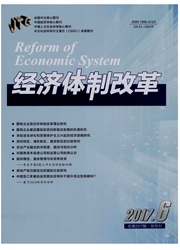

 中文摘要:
中文摘要:
通过分析美元加息动机及其对全球经济尤其是新兴市场国家的影响,构建了美元加息、人民币汇率波动与短期跨国资本流动的相互影响模型MSI(2)-VAR(1)。基于2009年1月~2015年12月相关数据的实证分析发现,美国自身经济是美元加息的决定因素,抑制通货膨胀和跨国资本流动是美元利率变动的重要动机;中美利差及其加息预期和人民币兑美元汇率波动影响短期跨国资本流动;美元单方面加息无法自主实现均衡,需要结合利率变动预期因素对传统无风险套利模型进行修正,通过货币当局积极管理来维护汇率稳定。
 英文摘要:
英文摘要:
By analyzing the motive of US dollar interest rate rise, we establish the model MSI (2) -VAR (1) to explore the impact among US dollar interest rate rise, RMB exchange rate and short-term transnational capital flows in emerging markets. We apply an empirical analysis on the relevant data from January 2009 to December 2015 and obtain some conclusions: (1) The US economy is a determinant of the rate rise in the US dollar. The inflation and transnational capital flows are important motivations for the dollar interest rate changes; (2)Interest rate gap between China and America, and its volatility expectations, and the volatility of the RMB exchange rate against the US dollar affect short-term transnational capital flows;(3) The US dollar unilateral rate rise cannot be equilibrium autonomously. It is neces- sary to revise the traditional risk- free arbitrage model by adjusting the expected factors of interest rate changes and maintain the exchange rate stability through the active management of the monetary authority.
 同期刊论文项目
同期刊论文项目
 同项目期刊论文
同项目期刊论文
 期刊信息
期刊信息
